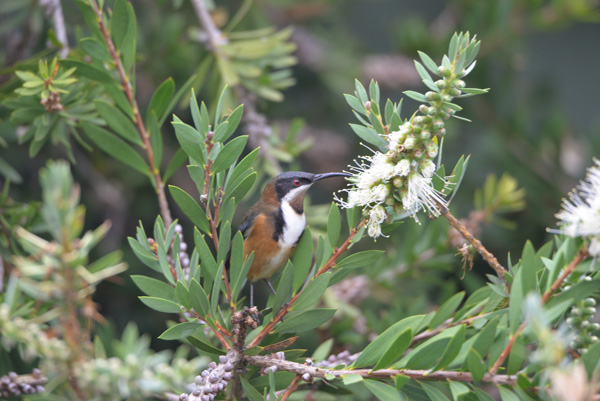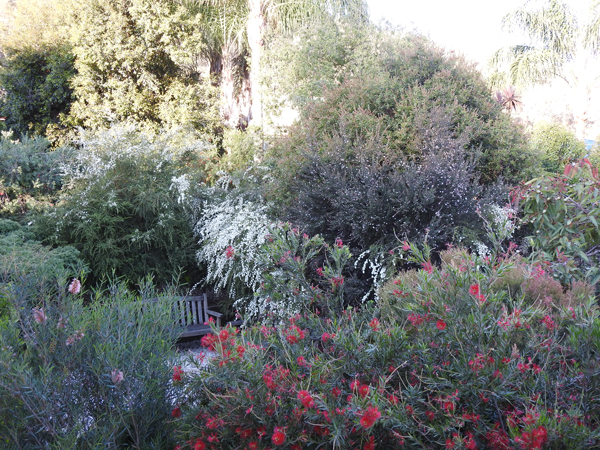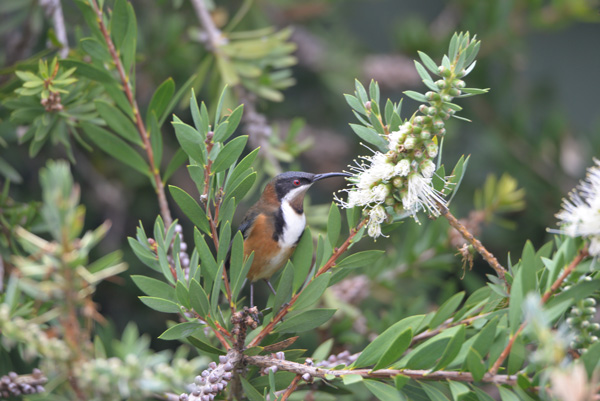By Lizette Salmon, Gardens for Wildlife Albury-Wodonga Project Officer
Gardens can provide vital stepping stones for native animals moving through the landscape for food, water, breeding or migratory purposes. Even small habitat gardens have the potential to provide temporary and longer-term refuge for native birds, insects, reptiles and small mammals. A case in point is a delightful, smaller wildlife garden in Glenroy that’s open to the public 9.00am-1.00pm on Sunday 24 April 2022.
The owners bought the property because it had everything they wanted inside. The outside, however, was a different matter, having almost nothing they liked in a garden. The front consisted of lawn, roses and agapanthus. The back contained a large paved area which caused intense glare. There was no privacy from neighbours.
David and Sue began with the idea of replacing the paved area with something more inviting, but one thing led to another and they finished up doing a total makeover.
They planted several hundred native plants from quite a few families, but steered clear of species such as banksias that do not like the heavy clay soils of this region. They found several small or dwarf eucalypt species that gave some height to a small suburban garden without being a menace to their house or neighbours.
Callistemons of all shapes and sizes provide nectar for the bees and honeyeaters. The prickly types of grevillea provide shelter for small bird species and stop the aggressive noisy miners from chasing them away. Various pots with correas, kangaroo paws and westringeas provide contrasts around the edge of their favourite sitting place. Amongst this they have even found space for a small but very productive vegetable garden and three grafted fruit trees. Retaining walls are hidden by prostrate eremophilas, Leptospermum “Pink Cascades” and myoporums.
David and Sue have created a private garden that they sit in for many hours a day during the milder months. They have lots of time to relax and little maintenance to do with all the plantings being heavily mulched. What they inherited as a biological desert has become a haven for honeyeaters, parrots, finches, tree frogs and even a family of striated pardalotes raising successive broods.
Their open garden is hosted by Gardens 4 Wildlife Albury-Wodonga, an initiative of Wodonga Urban Landcare Network, with the support of AlburyCity. Tickets $5 per person can be purchased here: www.trybooking.com/BYOPQ



